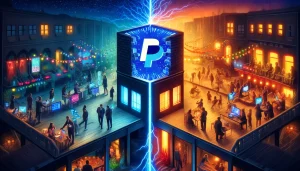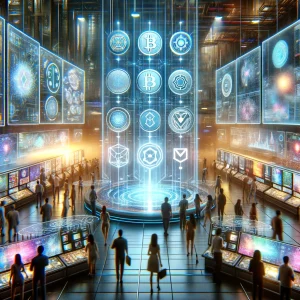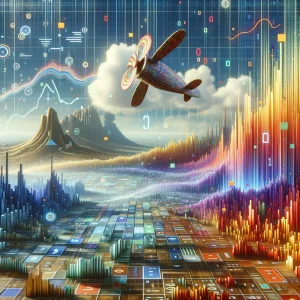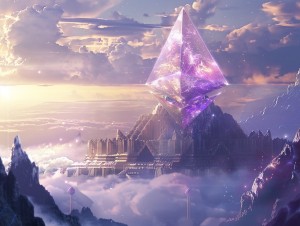To drive demand to its peak, mass marketing was required by producers of goods and services. It is estimated that household spending in the US accounts for 70% of its economy. One would wonder why this is so. Research shows that advertisements have played a major role in this regard. Advertisements have also played a major role in creating what is known as the Creator Economy.
Most big brands that are known today were able to leverage advertisements on television. It would interest you to know that the attention of individuals was easy to capture. Upon the arrival of the internet age, the attention span of people was all over the place. This dawn brought about the attention economy.
On the other hand, the Creator Economy is a means whereby creators can reach out directly to consumers and make their own money. The Creator Economy has provided creators with the avenue of bypassing agencies and other big advertising firms. With these advertising brands, most companies would have to attain a certain degree of growth to afford them.
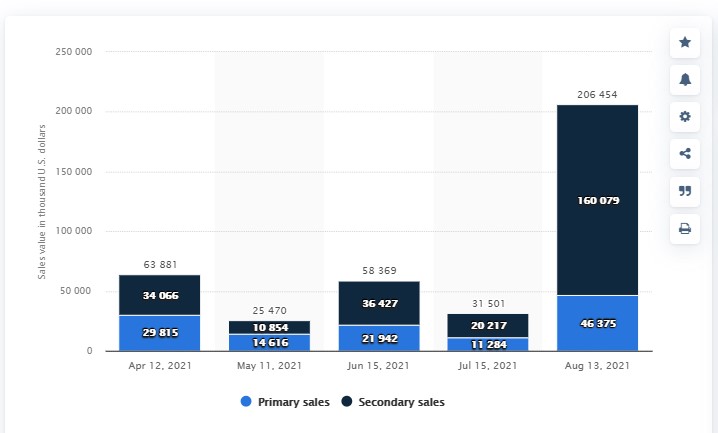
Centralization and the Creator Economy
The advent of the Creator Economy was to escape centralization. As of now, the world is beginning to see the distribution of creativity at an unimaginable scale. The disadvantage with centralization is that medium-scale businesses can’t bear the advertisement cost and losses and are at the mercy of intermediaries and rent-takers.
Centralized marketing teams usually have one department that takes the major decisions. This affects the creativity and the autonomy of individuals. Centralization was sure not to take marketing to the next phase and posed a great disadvantage to creators. Creators were subject to the demands of the community. Hence, the creation of the Creator Economy.
The opportunities that NFTs and the decentralized space presents to creators
The arrival of Blockchain technology has changed the phase of advertising as we know it. Blockchain technology has changed a whole lot of things. Blockchain is decentralized, meaning that not one single entity controls it.
Combined with NFTs (non-fungible tokens), the creator economy sets the foundation for a new collective ownership model. Creativity is integral to our human experience, but for the first time, we can harness creativity as it benefits many and not just a few. A space that has been gaining a lot of traction in the creator economy is the NFT space.
For example, please look at Next Earth, a virtual world where users can build whatever they like. Everything in Next Earth, from the digital plots of land to objects within them, are non-fungible tokens (NFTs).
With this new digital asset of pixel art on the blockchain, any NFT enthusiast can find many exciting new applications across industries ranging from gaming, film, real estate development, finance, fine art trading, and much more.
But what’s the catch here? What’s keeping NFTs afloat? It’s not necessarily art. NFTs are now finding a fast-growing utility as “keys” for unique access to experiences. Also, in gameplay, something experts long predicted would be the ultimate value of non-fungible tokens.
What’s in store for NFTs vis-a-vis Creator Economy?
For years, the creator economy was based around earning money through ad revenue sharing and brand sponsorships. The sponsorship market reached $8 billion in 2019 and is estimated to hit $15 billion by 2022.
Mediakix 2021 research
Putting some critical thinking into the above research, we can surmise that the creator economy appears to give the user more agency. Rather than trying to game social-media algorithms, creators can theoretically rely on more dependable income from supporters. They can choose which kinds of work they take on, whether newsletters, live streams, or audio chats.
Without a middleman or agency-in-between supporters and creators, you can imagine where the income goes.
DappRadar, which tracks blockchain sales, saw that in the second quarter of 2021, NFTs brought in $2.4 billion, slightly above the first quarter’s $2.3 billion. These numbers don’t even account for off-chain sales, transfers through auction houses, like the Beeple sale. The same report found that sales spiked 111.46% compared to Q1, with the number of active wallets also jumping 151.89% in the same time period.
Even with the possibility of wash trading, Nansen sees NFT statistics overall as encouraging for the industry’s growth.
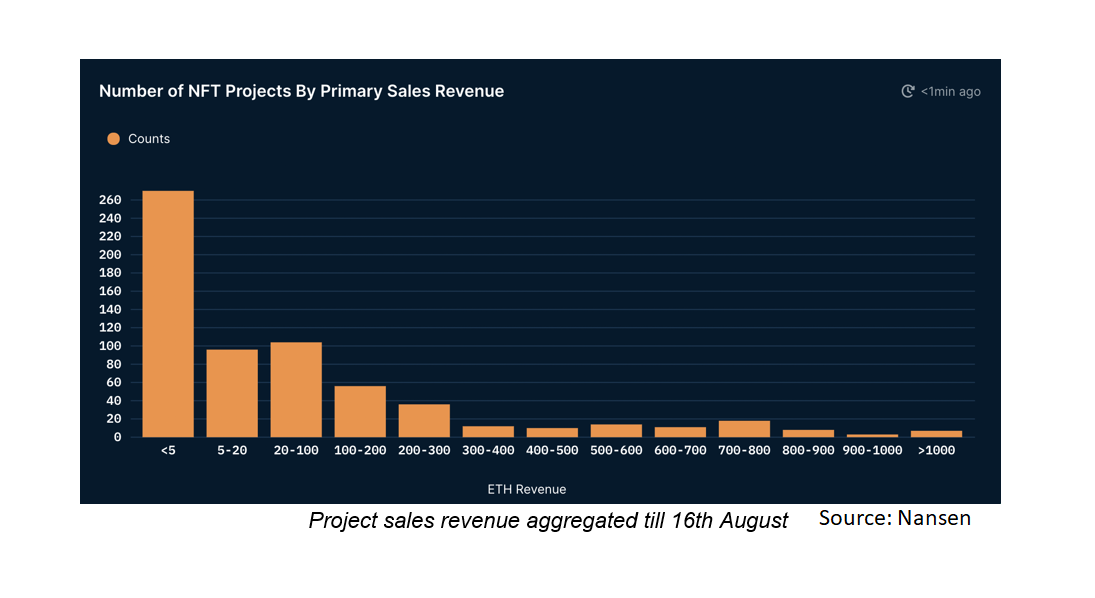
NFTs are a bright new vertical. The healthy distribution of NFT minters and rising number of unique buyers point to genuine, organic growth.
Nansen Report
NFTs are unique and blockchain-managed assets that cannot be created or destroyed – only transferred between individual holders on the network. This means all transactions made with these digital goods must be tracked by their respective blockchains.
NFTs are ideal for serialized ownership tracking systems such as those used to manage who owns what physical asset when it comes time for an estate sale after someone’s passing, among many other real-life scenarios related to handling large quantities of similar but not identical items whose provenance should remain verifiable long into future use.
Conclusion
The Influence that NFTs and marketing have on the Creator Economy is quite huge. NFTs put a prime on ownership and the idea of which renders an item more valuable simply because it’s owned. Banking on the innate human perception that owning things is value in and of itself,
NFTs enable fans to associate an experience with value. NFTs are now finding a fast-growing utility as “keys” for unique access to experiences. Particularly in gameplay, we can now observe what experts long predicted would be the ultimate value of non-fungible tokens. Lots of money can be made in the NFT space!


